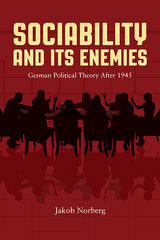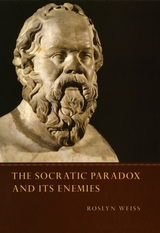6 books about Its Enemies

Aesthetic Theology and Its Enemies
Judaism in Christian Painting, Poetry, and Politics
David Nirenberg
Brandeis University Press, 2015
Through most of Western European history, Jews have been a numerically tiny or entirely absent minority, but across that history Europeans have nonetheless worried a great deal about Judaism. Why should that be so? This short but powerfully argued book suggests that Christian anxieties about their own transcendent ideals made Judaism an important tool for Christianity, as an apocalyptic religion—characterized by prizing soul over flesh, the spiritual over the literal, the heavenly over the physical world—came to terms with the inescapable importance of body, language, and material things in this world. Nirenberg shows how turning the Jew into a personification of worldly over spiritual concerns, surface over inner meaning, allowed cultures inclined toward transcendence to understand even their most materialistic practices as spiritual. Focusing on art, poetry, and politics—three activities especially condemned as worldly in early Christian culture—he reveals how, over the past two thousand years, these activities nevertheless expanded the potential for their own existence within Christian culture because they were used to represent Judaism. Nirenberg draws on an astonishingly diverse collection of poets, painters, preachers, philosophers, and politicians to reconstruct the roles played by representations of Jewish “enemies” in the creation of Western art, culture, and politics, from the ancient world to the present day. This erudite and tightly argued survey of the ways in which Christian cultures have created themselves by thinking about Judaism will appeal to the broadest range of scholars of religion, art, literature, political theory, media theory, and the history of Western civilization more generally.
[more]

The Berlin Secession
Modernism and Its Enemies in Imperial Germany
Peter Paret
Harvard University Press, 1980

Rebellion and Its Enemies in Late Imperial China
Militarization and Social Structure, 1796–1864, With a New Preface by the Author
Philip A. Kuhn
Harvard University Press, 1970

Secret Power
WikiLeaks and Its Enemies
Stefania Maurizi
Pluto Press, 2022
An uncovering of the terrifying depths of authoritarian power that hide behind the infamous story of WikiLeaks
*Winner of the European Award for Investigative And Judicial Journalism 2021*
*Winner of the Premio Alessandro Leogrande Award for Investigative Journalism 2022*
*Winner of the Premio Angelo Vassallo Award 2022*
'I want to live in a society where secret power is accountable to the law and to public opinion for its atrocities, where it is the war criminals who go to jail, not those who have the conscience and courage to expose them.'
It is 2008, and Stefania Maurizi, an investigative journalist with a growing interest in cryptography, starts looking into the little-known organisation WikiLeaks. Through hushed meetings, encrypted files and explosive documents, what she discovers sets her on a life-long journey that takes her deep into the realm of secret power.
Working closely with WikiLeaks' founder Julian Assange and his organisation for her newspaper, Maurizi has spent over a decade investigating state criminality protected by thick layers of secrecy, while also embarking on a solitary trench warfare to unearth the facts underpinning the cruel persecution of Assange and WikiLeaks.
With complex and disturbing insights, Maurizi’s tireless journalism exposes atrocities, the shameful treatment of Chelsea Manning and Edward Snowden, on up to the present persecution of WikiLeaks: a terrifying web of impunity and cover-ups.
At the heart of the book is the brutality of secret power and the unbearable price paid by Julian Assange, WikiLeaks and truthtellers.
*Winner of the European Award for Investigative And Judicial Journalism 2021*
*Winner of the Premio Alessandro Leogrande Award for Investigative Journalism 2022*
*Winner of the Premio Angelo Vassallo Award 2022*
'I want to live in a society where secret power is accountable to the law and to public opinion for its atrocities, where it is the war criminals who go to jail, not those who have the conscience and courage to expose them.'
It is 2008, and Stefania Maurizi, an investigative journalist with a growing interest in cryptography, starts looking into the little-known organisation WikiLeaks. Through hushed meetings, encrypted files and explosive documents, what she discovers sets her on a life-long journey that takes her deep into the realm of secret power.
Working closely with WikiLeaks' founder Julian Assange and his organisation for her newspaper, Maurizi has spent over a decade investigating state criminality protected by thick layers of secrecy, while also embarking on a solitary trench warfare to unearth the facts underpinning the cruel persecution of Assange and WikiLeaks.
With complex and disturbing insights, Maurizi’s tireless journalism exposes atrocities, the shameful treatment of Chelsea Manning and Edward Snowden, on up to the present persecution of WikiLeaks: a terrifying web of impunity and cover-ups.
At the heart of the book is the brutality of secret power and the unbearable price paid by Julian Assange, WikiLeaks and truthtellers.
[more]

Sociability and Its Enemies
German Political Theory After 1945
Jakob Norberg
Northwestern University Press, 2014
Sociability and Its Enemies contributes both to contemporary studies of political theory and to discourse on postwar Germany by reconstructing the arguments concerning the nature and value of sociability as a form of interaction and interconnection particular to modern bourgeois society. Jakob Norberg argues that the writings of Hannah Arendt, Jürgen Habermas, Carl Schmitt, and the historian Reinhart Koselleck present conflicting responses to a hitherto neglected question or point of contention: whether bourgeois sociability should serve as a therapeutic practice and politically relevant ideal for postwar Germany. The book sheds light on previously neglected historical and conceptual connections among political theorists, and it enriches established narratives of postwar intellectual history.
[more]

The Socratic Paradox and Its Enemies
Roslyn Weiss
University of Chicago Press, 2006
In The Socratic Paradox and Its Enemies, Roslyn Weiss argues that the Socratic paradoxes—no one does wrong willingly, virtue is knowledge, and all the virtues are one—are best understood as Socrates’ way of combating sophistic views: that no one is willingly just, those who are just and temperate are ignorant fools, and only some virtues (courage and wisdom) but not others (justice, temperance, and piety) are marks of true excellence.
In Weiss’s view, the paradoxes express Socrates’ belief that wrongdoing fails to yield the happiness that all people want; it is therefore the unjust and immoderate who are the fools. The paradoxes thus emerge as Socrates’ means of championing the cause of justice in the face of those who would impugn it. Her fresh approach—ranging over six of Plato’s dialogues—is sure to spark debate in philosophy, classics, and political theory.
“Regardless of whether one agrees or disagrees with Weiss, it would be hard not to admire her extraordinarily penetrating analysis of the many overlapping and interweaving arguments running through the dialogues.”—Daniel B. Gallagher, Classical Outlook
“Many scholars of Socratic philosophy . . . will wish they had written Weiss's book, or at least will wish that they had long ago read it.”—Douglas V. Henry, Review of Politics
[more]
READERS
Browse our collection.
PUBLISHERS
See BiblioVault's publisher services.
STUDENT SERVICES
Files for college accessibility offices.
UChicago Accessibility Resources
home | accessibility | search | about | contact us
BiblioVault ® 2001 - 2024
The University of Chicago Press









